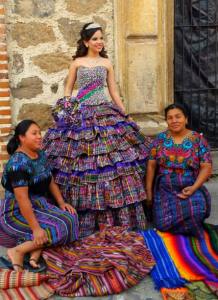A while back, a friend posted on my Facebook page a photo montage that had been going around, by adoptive mother and photographer Kim Kelley-Wagner, whose two daughters were born in China. The montage shows the girls holding white boards hand-printed with comments people have said to or about them over the years. Some included “They send their babies here so they can become spies when they get older” and “Your mom could have bought a nice car instead of adopting you.”
A few people expressed surprise when they saw the montage, asking if similar comments had been made to us. They have, although with less frequency than they used to. At this point—my kids are almost 13 and 10–we have our routines and schedules, our circles who know us. Comments occur–or maybe it’s curiosity?–when we go outside the circle. So, a new school for 10-year-old Mateo, a different kid in a class, a first-time activity or sport will provoke a fresh round of inquiries. Questions like. “Why didn’t your real mom want you?” Or “Is she your real mom?” The questions are not intended to hurt, but they affect my children on some deep level. We go through this periodically.
Another place this happens, perhaps not surprisingly, is Guatemala. (Where we visit often.) Always, we are subjected to many looks, some questions, and a degree of judgement. (Which is understandable, but still! Repercussions occur within my children.)
And I realize, again, that as the biological offspring of my two parents, I never experienced this. My belonging was never called into question, the way it is for my children.
Then today, out of nowhere, another example occurred. As we got out of the car, Mateo said, “You know that DVD I watched last week, ‘Alexander and the Terrible, Horrible, No Good, Very Bad Day’?” And I’m thinking, You mean the one released by Disney, rated PG, and based on a book written by the famously sensitive Judith Viorst?
I kept my tone neutral. “Yes?”
“One of the girl characters says to a boy character, ‘Are you sure you’re not adopted?’” Mateo emphasized the word ‘adopted’ with a sneer. “She said adopted like he was bad because he was adopted. Because he wasn’t like anyone else in his family, so he was weird.“
I stayed quiet for a moment. “How did that make you feel?”
“Sad.” He sniffed, wiping his eyes with the edge of his shirt. “If you’re watching the movie and you’re not part of an adoptive family, you don’t care. But if you’re adopted, you get it.”
I pulled him close, reassuring Mateo that I understood, that as his mother through adoption, I got it, too.
I don’t know why I’m writing about this, except I want to remember this phase of my family’s life. We love one another. That’s a given. Which is not the same as saying that every day everything is easy and simple. ~
(PS: At the bottom of the page, it says “Comments are closed.” I don’t know why.)


 ShareThis
ShareThis




 ShareThis
ShareThis